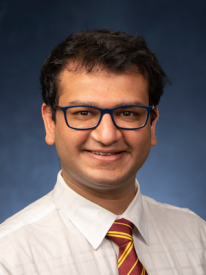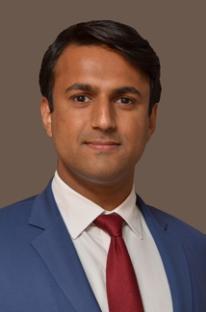Three University of Minnesota investigators will receive support to test their ideas for enhancing healthcare delivery, such as by improving patient outcomes, decreasing the burden on the healthcare system, and reducing costs.
Support comes from the Rapid Evaluation Research Program, a Center for Learning Health System Sciences program done in partnership with CTSI. The inaugural round of selected investigators receive mentorship, research design expertise, and support for project management, implementation, dissemination, and statistical analyses. M Health Fairview projects receive data and technology support.
Proposals were selected on the basis of potential impact on an important issue with high likelihood of scalability, theoretical and scientific basis, rapid (data collection <6 months) timeframe, and measurable and testable outcomes. Projects will commence early in 2022, and the next call for proposals is anticipated in Spring 2022.

System-based approaches for improving appropriate utilization of cardiac monitoring
Brian Hilliard, MD, Assistant Professor of Medicine, Division of General Internal Medicine, University of Minnesota and co-chair, Quality Committee, Hospital Medicine Domain, M Health Fairview
Intervention: Electronic health record-based decision aid to minimize telemetry overuse
Through observation, the hospital medicine domain has identified that the telemetry bed capacity is a bottleneck for patient flow in the M Health Fairview system. This inappropriate use leads to suboptimal uses of staff time, skill sets, equipment, and facilities.
This project aims to reduce the number of cardiac monitoring orders that do not meet the 2017 American Heart Association guidelines. The project has the opportunity to improve quality and safety by removing patients who don’t need telemetry, thus improving capacity and access for patients who need it. It can also improve the total cost of care by reducing patients’ length of hospital stay, financially benefiting both the health system and the patients.

Reducing chemotherapy toxicity in older adults with cancer
Arjun Gupta, MD, Assistant Professor of Medicine, Division of Hematology, Oncology and Transplantation, University of Minnesota
Intervention: Shared decision-making tool for older adults newly diagnosed with cancer, aimed at reducing toxicity
Older adults with cancer have vulnerabilities (e.g., issues with function, comorbidity, cognition, and nutrition) that place them at high risk of chemotherapy toxicity. Unfortunately, busy oncologists do not have the time, resources, or infrastructure in clinic to assess or address these vulnerabilities in a systematic manner. This leads to higher rates of chemotherapy toxicity in older adults with cancer.
Incorporating chemotherapy toxicity tools into the electronic health record can inform patient-oncologist decision-making about whether and what chemotherapy to pursue, promote goal-concordant care, and decrease toxicity, primarily unplanned hospitalization. This improves patient outcomes, decreases burden on the healthcare system, and results in cost savings.

Empowering appropriate patient opioid use
Sagar Deshpande, MD, Medical Resident, Plastic Surgery, University of Minnesota
Intervention: Communication tool designed to tailor post-op pain control to reduce opiate overuse/dependency
America’s opiate epidemic has entered its second decade. Tragically, 2020 saw the highest number of overdose deaths ever, reflecting an annual uptrend.
Attention is generally focused on two interventions: 1) restricting prescribing, and 2) treating addiction. Unfortunately, prescriber restrictions are wholly ineffective in stemming the tide of addiction. Despite opiate prescribing decreasing annually (reaching its lowest-ever level in 2020), opiate mortality continues to soar. While treating addiction is important, it is preferable to avoid addiction entirely. However, there are no available tools to help a motivated opiate-naïve patient with a medically necessary opiate prescription responsibly use and discontinue their medication and avoid becoming a victim of addiction.
The overall goal is to develop a tool that provides the opiate-naïve patient with reinforcement, attention, and support by providing temporally relevant counseling about weaning off their opiate medications.
